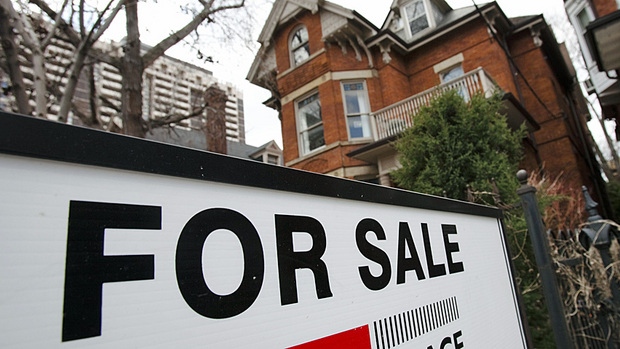Peter Walsh says that since arriving in Toronto a decade ago, he and his wife have purchased three houses and two condos.
But he rejects the idea that their property investments are contributing to the affordability crisis in the city's red-hot real estate market.
"I wouldn't like to think of us as kind of ruining the market for anybody or making it bad for anyone," says Walsh, who emigrated from the UK and now works full-time as an accountant. "I don't think I'm driving up the market. I'm just quietly benefiting from it."
His comments come amid suggestions from some real-estate observers that domestic investors in Toronto are partially responsible for pushing up prices in a housing market with a limited supply, making it a challenge for first-time buyers to purchase a home.
Figures just released by the Toronto Real Estate Board reveal that Toronto home prices jumped 21 per cent from a year ago and now average $762,975.
That spike, some real estate observers suggest, could be related to the domestic investor market. According to one recent survey of Toronto-area real estate agents, domestic investors now make up 25 per cent of their client base.
Meanwhile, the Toronto condo research firm Urbanation says foreign buyers made up only five per cent of the sales of new units in condo buildings that were under development between July and September. Domestic investors made up 52 per cent.
'I don't think I'm hosing anybody'
Walsh says the properties he and his wife have acquired are renovated and rented out, providing housing for those who may not have an established credit history and are unable to yet afford their own home.
"What I feel we've done is perhaps help people," he says. "I can justify it to myself in saying I don't think I'm hosing anybody or demanding excessive rents."
For example, Walsh says one of his former tenants, an artist, wasn't able to afford the entire rent. So Walsh accepted one of her paintings to supplement the rent owing.
Jennifer Goheen says she and her husband have purchased three Toronto condos and a house because they realized there was more money to be made in real estate than in the standard type of investing with a bank or an investment firm.
She also disagrees that investments like hers have had much impact on the housing market.
"I'd argue that's perhaps more of a foreign investor issue. From our perspective, it's an investment that has higher gains than others."
Higher gains
Another Toronto real estate investor who owns two houses and a condo, but did not want to be identified, says he also rents out his properties. He said he can understand pointing a finger at those who buy a house, quickly renovate it, then flip it six months later.
"Not sure that argument holds with someone who purchases one and is able to maintain lower rents because they don't keep flipping it and hold on to that property for 30 years," says the full-time medical researcher.
Before he purchases a property, he does a lot of research, visiting the neighbourhoods, getting to know the area, which includes looking at crime maps in the city.
He typically purchases property in an area where he can get reliable, long-term tenants. He says he likes to keep his properties in "very good shape" and that it encourages tenants to stay longer if they get nice new floors and appliances.
"If they go into disrepair, you get high turnover."
He says the property investments are an extra source of income — a "solid investment" that will "support me in my latter years."
Walsh says he and his wife are also treating their real estate investments as pension plans. He says they plan to keep investing until their retirement, at which time they will either sell all their properties or keep some for rental purposes and a steady income.

